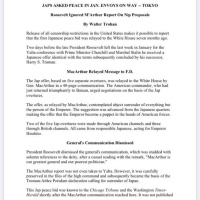

ケリーとコミーは確定した。
In the United States, there are both federal and state laws prohibiting treason.[1] Treason is defined on the federal level in Article III, Section 3 of the United States Constitution as: "levying War against [the United States], or in adhering to their Enemies, giving them Aid and Comfort." Most state constitutions include similar definitions of treason, specifically limited to levying war against the state, "adhering to the enemies" of the state, or aiding the enemies of the state, and requiring two witnesses or a confession in open court.[2] Fewer than thirty people have ever been charged with treason under these laws.[3]
Constitutionally, citizens of the United States owe allegiance to at least two sovereigns. One is the United States, and the other is their state. They can therefore potentially commit treason against either, or against both.[4] At least fourteen people have been charged with treason against various states; at least six were convicted, five of whom were executed. Only one person has ever been executed for treason against the federal government: William Bruce Mumford, who was convicted of treason and hanged in 1862 for tearing down a United States flag during the American Civil War. However, this was under martial law, not Article Three of the United States Constitution.[5]
While treason is a criminal matter under federal and state laws, it may be considered a civil matter under tribal law.[6] The Indian Civil Rights Act limits sentences for crimes by tribal courts to no more than one year in jail and a $5,000 fine.[7]
Definition: In Article III, Section 3 of the United States Constitution, treason is specifically limited to levying war against the US, or adhering to their enemies, giving them aid and comfort.[2]
Penalty: U.S. Code Title 18: Death,[8] or not less than 5 years' imprisonment (minimum fine of $10,000, if not sentenced to death). Any person convicted of treason against the United States will lose the right to hold public office in the United States. [9]
The terms used in the definition derive from English legal tradition, specifically the Treason Act 1351. Levying war means the assembly of armed people to overthrow of the government or to resist its laws. Enemies are subjects of a foreign government that is in open hostility with the United States.[10] Those who assemble to levy war, as well as those who conspire with them, can be prosecuted.[11] The American definition is narrower than that of English law, which spanned other classes of treason such as counterfeiting and bringing indignity upon the king.[12]
The Treason Act 1351 is an Act of the Parliament of England which codified and curtailed the common law offence of treason. No new offences were created by the statute.[1] It is one of the earliest English statutes still in force, although it has been very significantly amended.[2][3] It was extended to Ireland in 1495[4] and to Scotland in 1708.[5] The Act was passed at Westminster in the Hilary term of 1351, in the 25th year of the reign of Edward III and was entitled "A Declaration which Offences shall be adjudged Treason". It was passed to clarify precisely what was treason, as the definition under common law had been expanded rapidly by the courts until its scope was controversially wide. The Act was last used to prosecute William Joyce in 1945 for collaborating with Germany in World War II.
イギリスの法律では、大逆罪とは王室に対する不忠の罪である。大逆罪を構成する犯罪には、君主の殺害を企てること、君主の配偶者、君主の未婚の長女、王位継承者の妻と姦通すること、君主に対して戦争を仕掛け、君主の敵に忠誠を誓い、彼らに援助や慰めを与えること、合法的に確立された継承権を損ねようとすることなどがあります。歴史的に大逆罪に分類された犯罪は他にもいくつかあり、貨幣の偽造やカトリックの司祭などが挙げられます[1]。
月曜日の朝、ジェームズ・コミー前FBI長官が自然死しました。ギロチンの刃で頭を切断された後、心臓が停止したのです。
既報の通り、6月4日、軍事委員会はコミー氏に殺人と反逆の罪を犯し、独立記念日までに首を切るよう命じました。月曜午前11時、米海軍法務顧問団がその約束を果たし、ジョン・G・ハンニンク副提督が処刑に先立って簡単な式典を執り行いました。
クリントン氏やポデスタ氏の死刑執行とは異なり、コミー氏の死刑執行にはファンファーレがなく、海兵隊のデビッド・H・バーガー将軍を含む6人の軍人が、コミー氏の悲惨だがふさわしい死を目撃しただけだった。また、これまでの死刑執行とは異なり、コミーの死刑執行には詳細な説明がなかった。2人の制服を着た憲兵がコミーを残酷な装置の前に連れて行き、彼の頭をまな板の上に置いた後、ハンニンク副提督が自らレバーを引いて88ポンドの刃を14フィートの高さから落とした。Comey氏の頭はバスケットの中に落ち、バスケットは密封されて未知の場所に運ばれた。
処刑は、グアンタナモ湾の南端にあるウィンドワード・ポイント灯台の近くで行われました。この出来事に詳しい関係者がReal Raw Newsに語ったところによると、コミーの命を奪ったギロチンは、オバマ前大統領と一緒に、法を守る愛国者たちに使おうと思っていたものだったという。その意味で、この死刑執行装置は、アメリカとその国民に対するコミーの憎悪の象徴であった。
コミーは、死の直前、国会議員に引きずられてギロチンに向かう際、蹴りながら叫び始めた。彼は、「神様、殺さないでください。私は何も悪いことはしていません。私は何も悪いことはしていません。命令に従っただけです。私には子供がいます。死にたくありません。これは正義ではありません。"
"あなたには取引を受け入れる機会が何度もありました。今となっては遅すぎます」とハンニンク副提督はきっぱりと答えた。
"私はこれに値しない。I don't deserve this」とコミーは続けた。
憲兵は彼の首にロック装置をかけて、彼を動けないようにした。両腕を鷲づかみにされ、手首には手錠がかけられ、プラットフォームに固定された。刃が落ちると、ハンニンク副提督は小さな集会で挨拶をした。
「私たちはこんなことを楽しんではいません。彼にはこの運命を避けるチャンスが何度かあったが、すべて拒否した。今日、正義は果たされた」と語った。

























